From the beginning of my search to my first week of placement, waiting has been a key theme throughout the entire experience. In order to recount my placement experience, I will be using Gibbs’ reflective cycle.
It is not sufficient simply to have an experience in order to learn. Without reflecting upon this experience, it may quickly be forgotten, or its learning potential lost
G. Gibbs, 1998
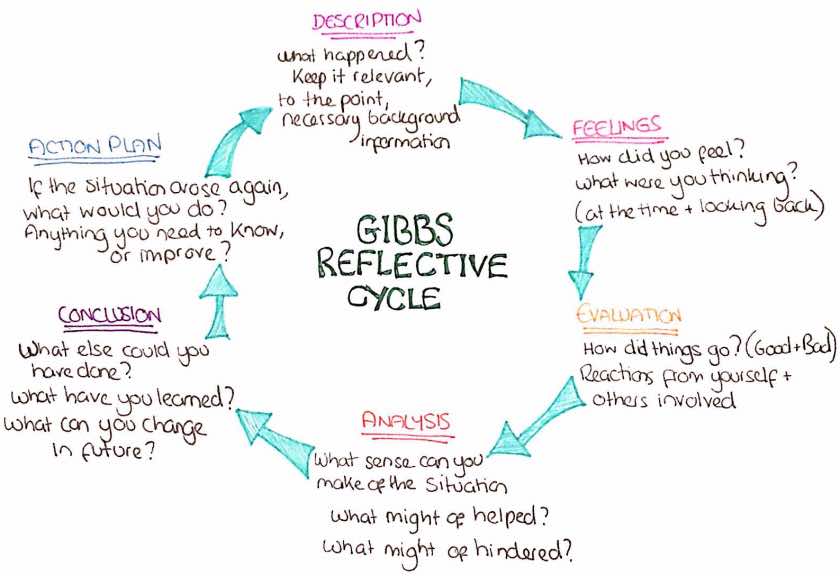
Gibbs’ reflective cycle encourages a clear description, analysis of a situation, and examines what one would do should the situation happen again. (Jasper, 2003) This cycle includes: describing what happened, explaining what you were thinking and feeling, evaluating the experience, analysing what you could have done better, coming to a conclusion on what you could’ve done, and finally, making an action plan so that if it happens again in the future, you will be ready to tackle the problem in a more beneficial manner.
Getting my placement
When it became time to search for placements, I applied for everywhere I thought I could make an impact. My priority was on set experience above anything else. It was really the only thing that mattered to me about my placement. I didn’t want to be stuck doing something that I knew that I wasn’t going to do in the future. However, as time went on, I realised that I wasn’t getting replies back from any of my hopeful placements, and if I did get a reply, it wasn’t the reply I was looking for. I ended up only getting one accepted placement: The Belfast Ensemble.
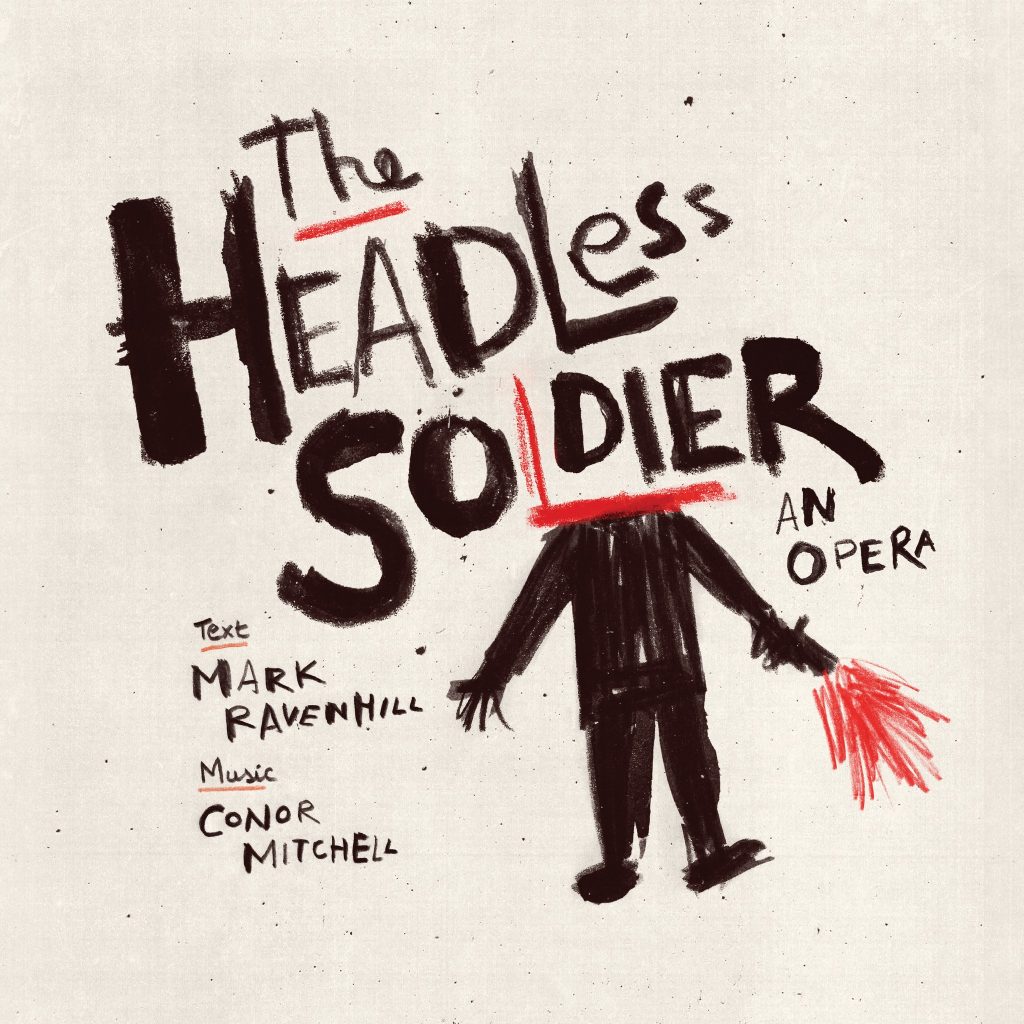
During this entire experience, I felt really discouraged. With my experience going into 3rd Year, I was expecting to be able to choose where I wanted to go and what I wanted to do, but in the end, it was the exact opposite. I went months without a reply and even went as far as to thinking about other classes to take or which subject I would do my dissertation on if I couldn’t secure a placement. Luckily, at the last moment, I was able to get one.
Evaluating my placement search, I think that it was generally a disappointment that I wasn’t able to secure a placement in my field because I think that my skill set is very valuable and rare for a student to have. However, because of this disappointment, I was able to realise that I can’t have an ego when going into this sort of thing. There are lots of contributing factors and technical skills may only be a small portion of what people are looking for.
It also taught me to not be complacent; that I can always be better. When thinking about this from an analytical point of view, I learned that things aren’t given based on how you view yourself. Other people don’t know you the way that you know yourself.
I feel like I could have done more in terms of searching for placements that would be interested in having me. I practically gave up whenever I realised things weren’t going my way and I am lucky to have got the placement I have now. I stopped applying to places. I should have continued, even if it wasn’t going well.
In the future, if the same problem happens when trying to find a job in the media space, I will remember that it is a very competitive market and that I shouldn’t be disappointed if the initial crop of jobs I apply to don’t accept me. I will remember that I’m only losing whenever I begin to write myself off.
After securing my placement…
When I first got the e-mail saying that The Belfast Ensemble wanted me as a trainee, I accepted the placement immediately without a second thought. Although it wasn’t a placement in the exact field, I see myself working in, it was a placement that involved getting more production experience, and that’s what matters to me the most. Though, as soon as I was confirmed for my placement, I didn’t hear back from them for a number of weeks other than the fact that I would eventually be needed and until then, I just had to wait.
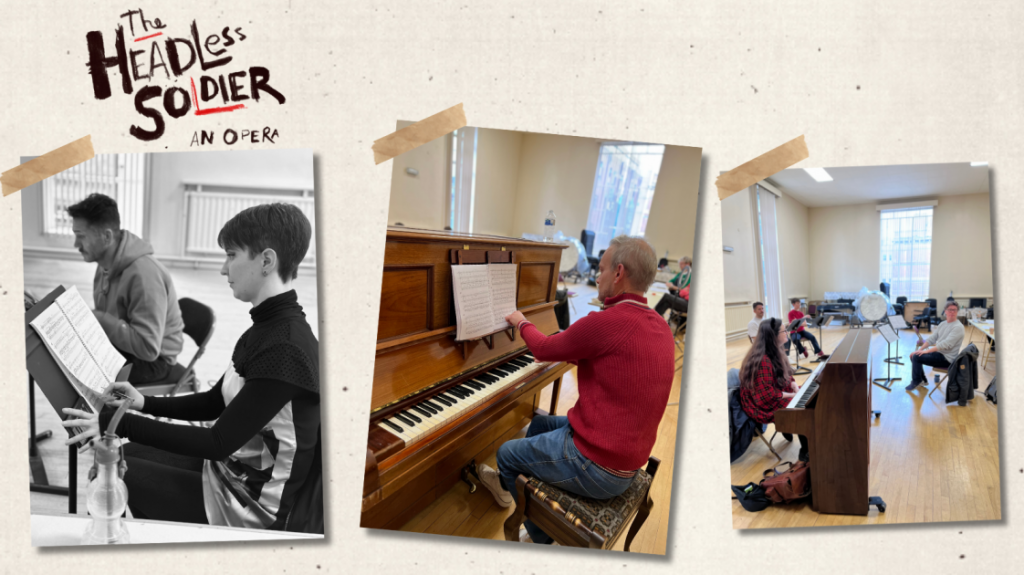
At the beginning, I experienced a lot of excitement. However, as time went on and contact becoming increasingly more sporadic, I felt insecure in my place. After a few weeks, I thought that I might need to find another placement or do a dissertation after all. Though, all of this got easier once I realised that there were a lot of people in the same position as me and that I wasn’t falling behind everyone else.
When I evaluate this period of my placement so far, I think that I should be happy that I got a placement. It was the main thing that I was worried about all summer, but sadly, I couldn’t relieve those worries because my placement still felt up in the air until a week or two ago.
I think that this was another lesson in the fact that patience is sometimes all you need, and that I should trust people more whenever they say that things will happen. In terms of things I could’ve done in this situation, I believe I could’ve reached out sooner than I did to get any information or iron out any worries that I had.
If something like this happens again, I will remind myself not to panic, to be patient, and to reach out if something is truly bothering me.
Finally starting my placement…
When I was finally needed for my placement, I went to the rehearsal room and met everyone involved. For the first session, I just watched for the little time I had. The next session I had was in the theatre. Again, I was mostly observing and asking questions whenever I had them. I was given a rundown through all of the equipment they have and how they use it because they realised that I was interested in the technical side of things. For most of the production, I was involved with the AV and lighting side of things, not so much on the stage. A lot of this involved the projections that the show was using. Sadly, I didn’t get to go to the actual shows because of work and other university requirements but I am looking forward to getting to work on the actual show next time around.
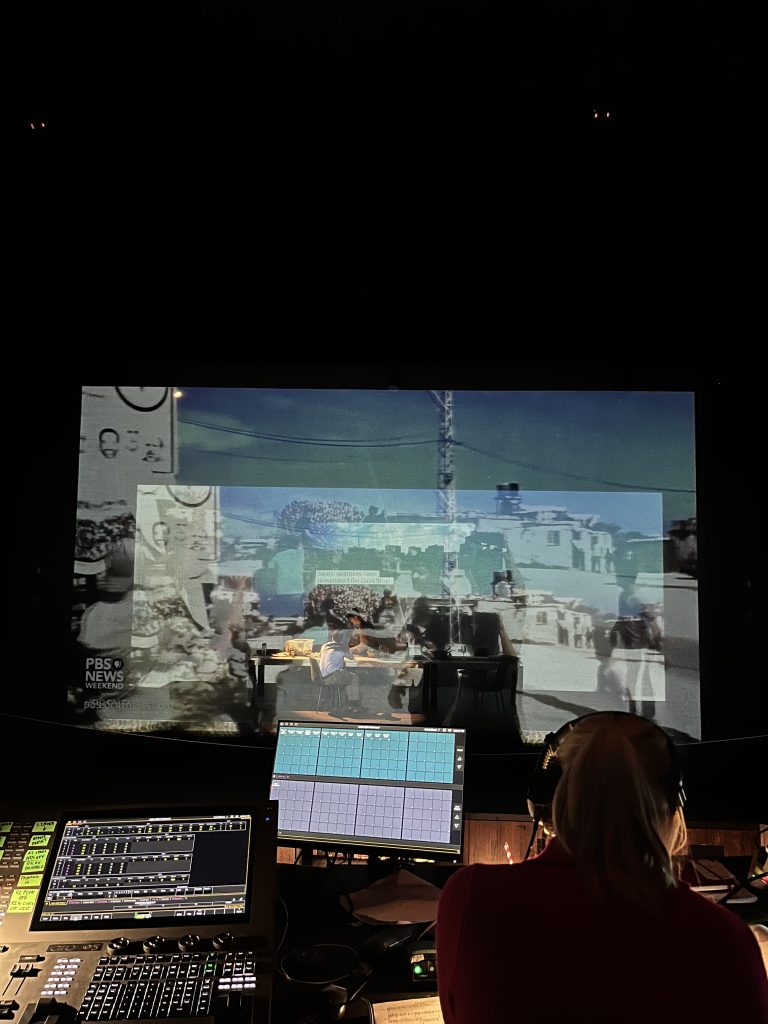
I felt that the entire experience was hectic yet magical. It was unlike anything I had ever experienced before. Everything was interesting and there wasn’t a single moment where I wondered why I was working on an opera. It was mostly observational but that is okay because I was able to fully take in what was going on around me.
When evaluating my experience, I was very happy because I got on set production! I was able to learn a lot about an industry I admittedly had no idea about. However, looking back, I wish that I had been given more to do. I’m not upset about it though because it was an entirely new experience with new people which helped me develop a new way of thinking of opera and theatre in general. I didn’t realise how much went into them on a technical level and how fast these productions need to be turned around from concept, to planning, to production.
When I think about what else could I have done, I think that I could have asked more questions and put myself out there to do more. I feel like I took a more reserved approach and that might have made people think that I wasn’t eager to do more than I was already doing.
If this happens for the next production, I will make sure that I get myself more involved. I will show a more confident side of myself and ask if there is anything that I can help with because I am now more familiar with the people running the show and with the work they are doing. I feel like I have done enough observation to now be a valuable presence on stage whenever I am needed.
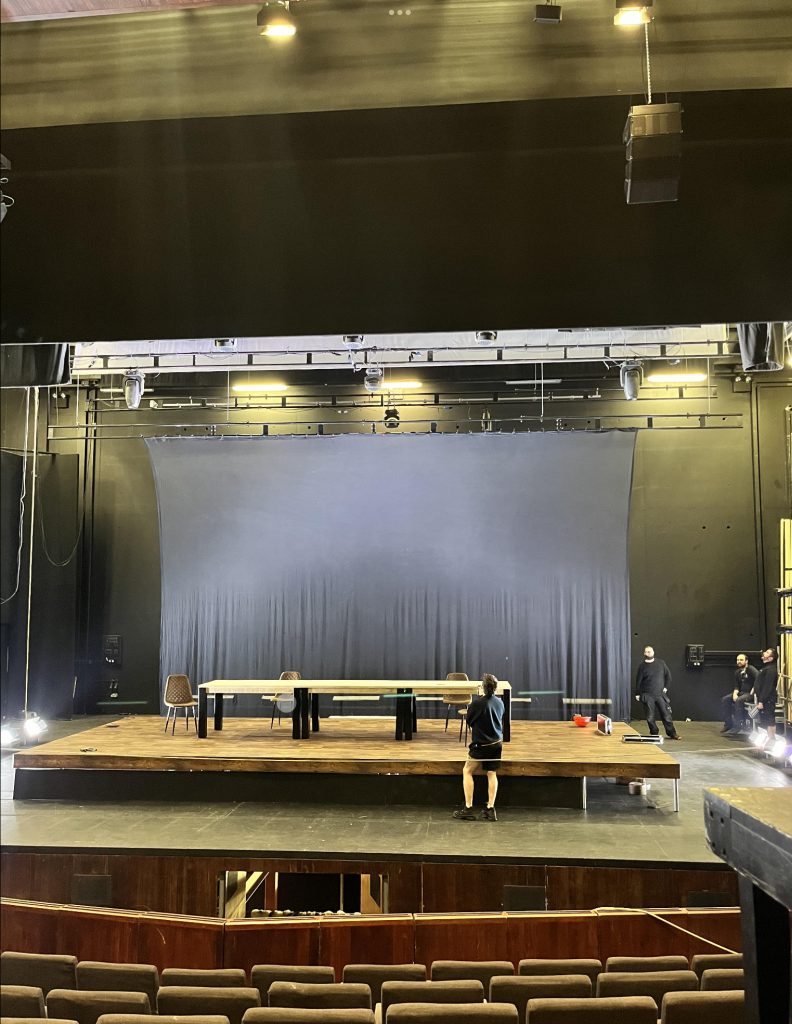
Although things got off to a rocky start with finding a placement and then getting time to work on the project, I am very happy with the outcome. I can see myself getting much more interested in opera and theatre in general and I could even see myself working in the AV role if my current plans don’t work out for me. I am very excited for the future of my placement and I can’t wait until the next opportunity arises.
BIBLIOGRAPHY
Jasper, M., 2003. Beginning reflective practice. Nelson Thornes.
Gibbs, G., 1988. Learning by doing: A guide to teaching and learning methods. Further Education Unit.